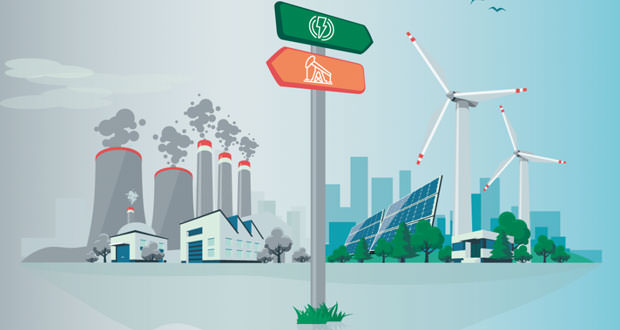Electric cars will help make oil less and less essential
A research by BNP Paribas says it: in order to remain competitive on the market, the price of oil should reach between 9 and 19 dollars a barrel.
New research, commissioned by BNP Paribas, says that future economies based on renewable energies will make oil less and less competitive on the market at current prices. According to the research, electricity generated from renewable sources will eventually erode 40% of the oil market shares.
The study focuses on the concept of ” Energy Return on Capital Invested (EROCI) “, ie the ability to produce energy based on an investment of 100 billion dollars that can be made in oil or renewable energy. In other words, one wonders: for a given capital outlay on oil and renewable sources, how much useful energy is obtained?
The analyzes indicate that with the same investment, the new renewable projects (wind and solar), exploited for electric mobility, will produce useful energy at the wheel 6 or 7 times higher than is possible with oil at 60 dollars a barrel, in the case of petrol vehicles. For diesel vehicles, the ratio is 3 or 4 times.
To continue to produce the amount of gasoline that was needed in 2018, the oil industry should spend 25 trillion dollars a year for the next 25 years, while to produce the energy level from renewable sources the cost would be around between 4,600 and 5,200 billion dollars.
Currently, 33% of global energy comes from oil, while renewable energy contributes only 3%. Over the next 15 or 20 years, the competitive advantage of oil is destined to decrease due to the increasing costs for plant maintenance and the need to replace exhausted wells.
” A growing portion of oil production will be subject to fierce competition from a cheaper and cleaner fuel source, ” the study said.
“ The competitive advantage is destined to move decisively towards electric vehicles compared to oil cars over the next five years. In our opinion, this will happen much sooner than you think the oil industry, ” says BNP Paribas.
In order for gasoline to remain economically competitive compared to battery-powered electric vehicles, the cost of oil will have to go down to 9 or 10 dollars per barrel, compared to around 60 dollars for the current exchange. In the case of diesel, instead, the cost of oil will have to be between 17 and 19 dollars.
More than a third of the crude produced today (about 36% according to the study) is used on board vehicles that could potentially be electrified, and an additional 5% is used to produce energy. This means that renewable electricity together with electric cars is a serious threat to the oil business model.
” We conclude that the oil economy for petrol and diesel vehicles compared to the economy behind electric vehicles powered by wind and solar energy is now in unstoppable and irreversible decline, with far-reaching implications for both politicians and oil majors “, the report reads.
The greatest number of renewable-energy sources brings with it other indisputable advantages. First of all, environmental benefits in terms of pollution reduction and climate change. But also public health benefits, greater ease in transporting electricity over oil, greater stability in production prices.
” Both in the case of diesel and gasoline, the days of oil as a fuel for light commercial vehicles are numbered because the economy that includes next-generation wind and solar projects combined with electric vehicles will become irresistible, ” the bank concludes.
The study is very relevant to the extent that it prefigures a completely different energy production and mobility scenario than the current one. The progressive improvement of the technologies underlying the production of energy starting from renewable sources and of electric propulsion technologies and inherent the autonomy of the batteries could make progressively superfluous the use of fuel based on fossil fuels. The oil-based economy, as we have seen in the article, is facing a series of increasing obstacles.

